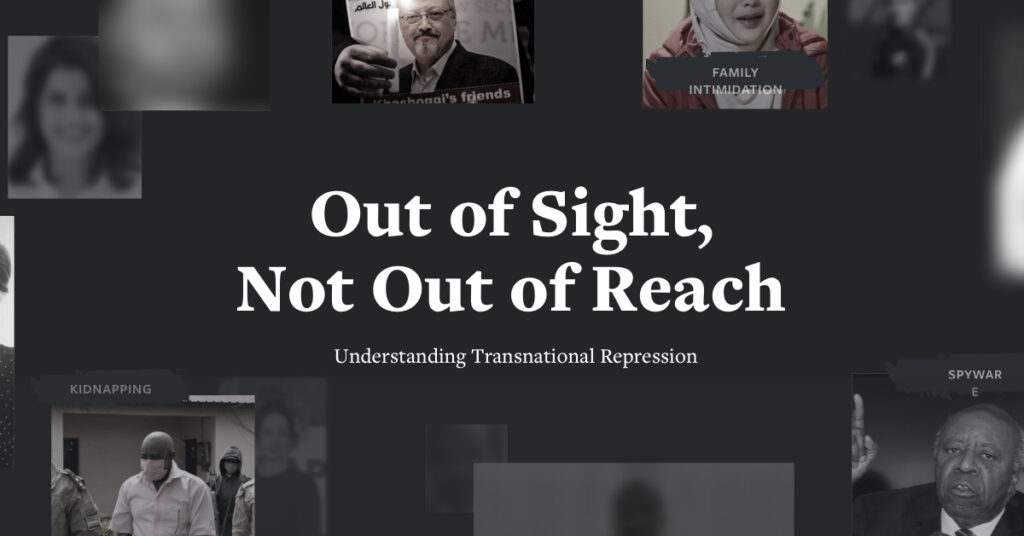
Authoritarian countries are silencing exiles and diasporas with tactics of fear and repression which violate exiles’ fundamental rights and undermine the rule of law in host countries, according to a new analysis.
In a new report, “Out of Sight, Not Out of Reach,” Freedom House compiled and catalogued 608 incidents of such direct cross-border authoritarian attacks since 2014 — detentions, assaults, physical intimidation, unlawful deportations, renditions and suspected assassinations, note Freedom House president Mike Abramowitz and Nate Schenkkan, the group’s director of research strategy and co-author of the report.
The incidents in the catalogue are only the tip of the iceberg; every assassination, every rendition, every detention creates a ripple effect in a diaspora community, silencing far more than just the individual targeted. And beyond these cases are more widespread tactics of “everyday” transnational repression: digital threats, spyware and coercion by proxy, such as the imprisonment of exiles’ families, they write for the Post.
 All of these are examples of “transnational repression,” or countries targeting their diasporas and exiles abroad in order to silence them. Freedom House’s research shows that:
All of these are examples of “transnational repression,” or countries targeting their diasporas and exiles abroad in order to silence them. Freedom House’s research shows that:
- Transnational repression is becoming a “normal” phenomenon. The global review identified more governments, using the same tools, in more incidents than is typically understood. The states that run transnational repression campaigns deploy a broad spectrum of tactics against their perceived enemies, from spyware and family intimidation to renditions or assassinations.
- Most physical transnational repression involves co-opting host governments in order to reach exiles. The most common forms of transnational repression—detentions and unlawful deportations at the origin state’s request—entail exploitation of the host country’s institutions. Most renditions also involve working closely with host country authorities to illegally transfer people to the origin country. In this way, transnational repression directly undermines the rule of law in the targeted host country.
- The consequences for transnational repression are currently insufficient to deter further abuse. Stopping transnational repression will require reestablishing international norms that support universal due process and punish extraterritorial violence.
- The full spectrum of transnational repression tactics matters. Online harassment, coercion by proxy, mobility controls, and use of spyware do not garner the same level of attention as assassinations, but these less visible forms of transnational repression are intimately connected to physical attacks. Any effective response to transnational repression needs to address this continuum of practices.







